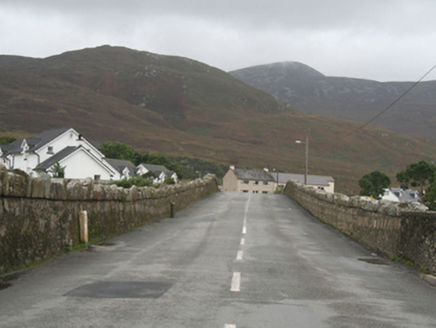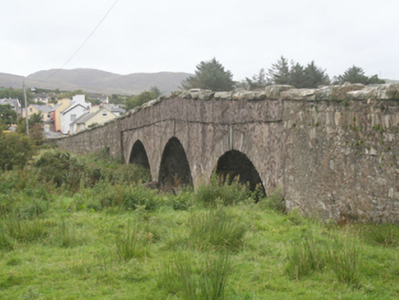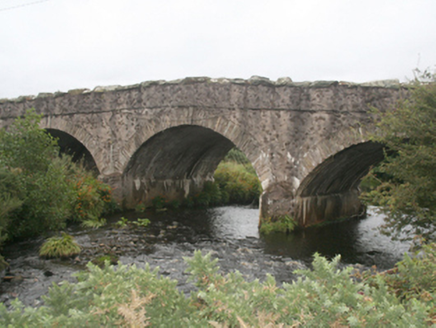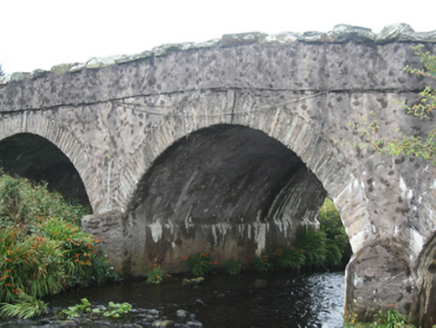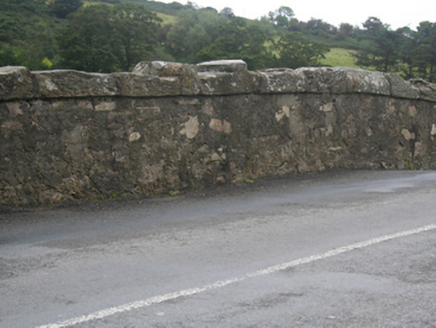Survey Data
Reg No
40804004
Rating
Regional
Categories of Special Interest
Architectural, Technical
Original Use
Bridge
In Use As
Bridge
Date
1780 - 1820
Coordinates
237029, 446407
Date Recorded
16/09/2009
Date Updated
--/--/--
Description
Triple-arch slightly humpbacked bridge carrying road over the Clonmany, built c. 1800, having V-profile rendered rubble stone cutwaters to central piers. Round-headed arches having roughly dressed stone voussoirs and projecting keystone detailing; cement rendered lining to arch barrels. Rubble stone construction to piers, abutments, spandrels and parapets; racked random rubble stone coping to parapets. Projecting stone stringcourse at road deck level. Rubble stone wing walls to either end of parapets (east and west). Tarmacadam deck. Cast-iron milepost (see 40804005) to bridge. Located in the rural countryside to the west of Clonmany. Modern footbridge constructed to one side.
Appraisal
This appealing and particularly elegant triple-arch bridge retains its early character and form, despite some modern modifications, and is an appealing feature in the scenic rural landscape to the west of Clonmany. It is robustly-constructed in local rubble stone masonry, and its continued survival and use stands as testament to the quality of its original construction, and of the skill of the masons involved. The unrefined rubble stone construction creates rather a picturesque and rustic appearance, while the three graceful arches, rubble stone cutwaters, and the crenellated parapet all add to its appeal. This bridge probably dates to the end of the eighteenth century or the first decades of the nineteenth century, a period that saw a great deal of road and bridge-building in Ireland, particularly by the Grand Juries (the forerunners of the County Councils). This appealing bridge is an integral element of the built heritage and transport heritage of the local area, and makes a positive contribution to the landscape. It predates the construction of Clonmany town in the middle of the nineteenth century. It was in existence in 1814, when it is outlined in Revd. Molloy’s 'Statistical Account of the Parish of Clonmany'.
